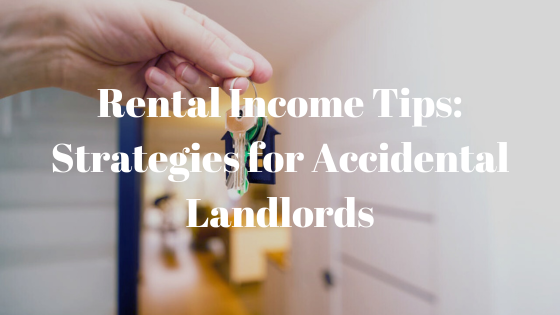Is a Month-to-Month Lease Better for Landlords?
As a landlord, it can be tricky to decide when to stick to your guns and when to allow for some compromise to keep your tenants happy. Big decisions are around every corner when you
invest in North Carolina real estate. One of these big decisions is whether you should implement month-to-month or fixed term leases on the properties you own.
There are benefits and pitfalls to both styles of leases. In general, a fixed-term lease provides more financial certainty in the long run. After all, you'll be able to plan into the future when you and your tenant are bound by the terms indicated in the lease. On the other hand, a month-to-month lease provides more flexibility.
Sometimes, landlords will pivot to a month-to-month lease once a fixed term lease comes to an end. Some landlords choose to opt for a month-to-month lease right from the start. Reading this article and familiarizing yourself with North Carolina's Landlord-Tenant laws will have you ready to decide which lease style is right for you and your property.
Month-to-Month Lease Benefits
Flexibility
Generally, a month-to-month lease is less common than its fixed-term counterpart, but there are some serious perks when it comes to flexibility.
It may be the case that you find a tenant who is a contract worker or a member of the military. In that case, they may require a month-to-month lease, knowing that they're likely to be relocated for work. With a month-to-month lease, you'll also be free to continue looking for a more long-term renter in the meanwhile.
Modifying the Rent
When you sign a fixed-term lease, you're locking in the rent price for the lease's duration. While that kind of stability is great when it comes to planning budgets and expenses, it can also limit you. After all, there may be changes in the market or to your unit that necessitate a change in the rent amount, but you'll be unable to do so. With a month-to-month lease, you'll have the ability to update the amount you charge for rent when you need to.
Finding the Best Time to Terminate
A month-to-month lease can be a great idea if you have rental property in a location that is greatly impacted by the seasons or the weather.
If you have property near beaches or other outdoor attractions, for example, you may want to charge more in the summertime, when demand is high.
Rewarding Loyal Renters
A month-to-month lease can provide plenty of benefits to tenants, who will be able to make plans without the threat of penalties. If you have tenants who have always respected your property and been timely with rent, it may be worth offering them a month-to-month deal in order to keep them around, if they show hesitance towards signing another long lease.
Month-to-Month Lease Downsides
Financial Uncertainty
When your tenants agree to a lease that extends for a year or longer, you'll know how much rental income you'll be able to expect, which will help with your budgeting and projections. Even if tenants are break their leases or miss rent payments, you'll be able to pursue legal action to recover what is owed to you. However, if you operate on a month-to-month basis and are unable to fill your units, you may miss your profit goals.
More Work for You
If you're allowing tenants to sign short-term month-to-month leases, it's likely you'll be spending more time promoting your property and finding new tenants. The process of finding new tenants involves applications, screenings, showing the property, and explaining your policies.
Each of these steps will take up your time, which may negate any of the convenience that month-to-month rentals do offer.
Time Crunch
How month-to-month leases usually work is that both the owner and the tenant have thirty days to announce that they will be leaving the lease. Once this notice is put in writing, the lease effectively ends the following month.
Thirty days is usually an adequate amount of time to find a new tenant, but it can feel rushed, particularly if you have other demanding commitments in your life. If you have less time to get a new lease signed, you may not do as good of a job screening potential tenants.
What About Lease Renewals?
When a lease comes to the end of its term, there are several ways to proceed. The first option is for the landlord and the renter to renew the lease. In this situation, an updated version of the lease for the following year will be signed by both parties. Usually, a landlord will send the renter an offer to renew their lease three months in advance of the lease ending. The renter will then have a specific timeframe in which to either renew the lease.
In some jurisdictions, a landlord may not increase rent by more than a specified percentage when a lease is renewed. This is what is referred to as rent control. Be sure to familiarize yourself with what increases are allowed in your area, and what conditions must be met to justify an increase.
If the renter decides not to renew the lease within the given time frame, this will mean the lease has ended. Certain leases stipulate that if a lease ends without renewal, it will automatically transition to a month-to-month agreement. Otherwise, you may sign a new agreement with your tenant to outline the month-to-month arrangement.
How to Proceed
We've taken a look both at the pros and cons associated with deciding on a month-to-month rental lease agreement. This is a good opportunity to reflect on your goals and whether you're more in need of flexibility or stability for your rental investment. Then, you can move on to finding the necessary forms for a month-to-month lease agreement.
If you have property in the Charlotte NC area and are looking for a hand managing your lease or any other aspect, reach out to us at Dawson Property Management. We have the answers to any number of property management-related questions. You can give us a call at (704) 438-9834.












